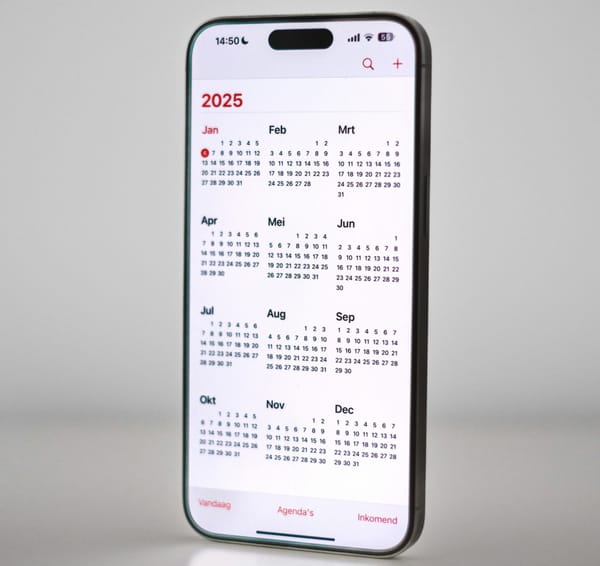Medicare Mayhem: The $60 Billion Healthcare Scam Epidemic Targeting America's Seniors

Bottom Line Up Front: Medicare fraud costs taxpayers an estimated $60 billion annually, with seniors increasingly targeted through sophisticated scams involving fake insurance cards, medical identity theft, equipment fraud, and bogus telehealth services. The rise of technology and COVID-19 pandemic has created new opportunities for criminals, but awareness and vigilance can protect vulnerable older adults.
The Staggering Scale of Medicare Fraud
America's healthcare system is under siege from fraudsters, and seniors are bearing the brunt of the attack. Medicare loses billions of dollars each year due to fraud, errors, and abuse. Estimates place these losses at approximately $60 billion annually, though the exact figure is impossible to measure. This massive hemorrhaging of funds represents far more than just numbers on a government ledger—it's money that could have provided legitimate healthcare services to the millions of Americans who depend on Medicare.
The scope of healthcare fraud has reached epidemic proportions. Healthcare fraud remains a significant concern in the United States, costing billions of dollars each year. Fraudulent healthcare claims account for nearly $1 in every $10 spent on healthcare. To put this in perspective, the U.S. government recovered over $3 billion in fraudulent healthcare payments in 2024, yet this represents only a fraction of the total losses.
The Human Cost Beyond Dollars
Medicare fraud hurts us all. When thieves steal from Medicare, there is less money for the health care you really need. You pay for things you might never get. You can get hurt when you get tests, medicine, or care you don't need. The impact extends beyond financial losses to potentially life-threatening consequences when seniors receive unnecessary medical procedures or have their legitimate claims denied due to fraudulent activity.
How Scammers Target and Obtain Medicare Information
The Predatory Tactics
Medicare scammers employ increasingly sophisticated methods to steal personal information from seniors. Scammers may get your number through data breaches, phishing calls, or by tricking you into giving it away. Understanding these tactics is crucial for protection.
Primary Methods of Information Theft:
- Impersonation Schemes: It involves somebody pretending to be a Medicare representative and encouraging you to share personal details so they can replace your card with a newer or more secure version. These scammers often use official-sounding language and may have basic information about their targets to appear legitimate.
- Spoofed Communications: Scammers can spoof (or fake) their number to make it look like the call is coming from a government agency or other known organization. This technological manipulation makes fraudulent calls appear to come from Medicare or other trusted sources.
- Data Breaches: Scammers use a variety of tactics to get Medicare beneficiaries to divulge their MBI. But these numbers can also be part of a data breach, and the information could be compromised even if the beneficiary doesn't communicate with the scammer. Recent years have seen significant breaches affecting hundreds of thousands of Medicare beneficiaries.
Vulnerable Moments for Seniors
Scammers strategically target seniors during periods of confusion or need:
- During Open Enrollment: Medicare recipients receive an abundance of solicitations prior to and during the Annual Open Enrollment period each year (October 15 – December 7). It is important to stay vigilant during this time for fake Medicare communications offering plan enrollment assistance, appointment scheduling help, or obtaining updated Medicare plan cards.
- Health Crises: When seniors are dealing with medical issues or seeking care, they may be more vulnerable to offers of "help" from fraudulent companies.
- Technology Adoption: Some older adults come to technology late, and their learning curve is therefore steep. That makes them easier targets for internet and email scams.
The Four Pillars of Medicare Fraud
1. Fake Insurance Cards and Identity Theft
The introduction of new Medicare cards in 2018 sparked a wave of card-related scams that continue today. A decision earlier this year by Medicare to stop using its beneficiaries' Social Security numbers as account numbers has not gone unnoticed by scammers.
Card Scam Characteristics:
- Some callers may request payment for the new Medicare card. Others may pose as medical insurers and threaten to cancel your insurance if you don't share information from the new card.
- Scammers create urgency by claiming immediate action is required
- They may reference recent Medicare policy changes to appear informed
Medical Identity Theft Consequences:
Medical identity theft is when someone uses your personal information — like your name, Social Security number, health insurance account number or Medicare number — to get medical care, see a doctor, get prescription drugs, buy medical devices, or submit claims with your insurance provider.
The aftermath can be devastating: If the thief's health information is mixed with yours, it could affect the medical care you're able to get or the health insurance benefits you're able to use. It also could hurt your credit.
2. Durable Medical Equipment (DME) Scams
DME fraud has become one of the most prevalent and lucrative forms of Medicare fraud. The 2024 National Health Care Fraud Enforcement Takedown resulted in criminal charges to 193 defendants and revealed more than $100 million in alleged fraudulent schemes related to DME.
Common DME Fraud Schemes:
- Unsolicited Equipment Offers: Scammers are targeting Medicare enrollees through phone calls, internet ads, and text messages with offers of free services, medical equipment, or gift cards upon confirming their personal information and eligibility for specific Medicare services.
- Phantom Billing: You see on your Medicare Summary Notice (MSN) or Explanation of Benefits (EOB) charges for equipment you do not need or did not receive
- Product Substitution: A supplier delivers an off-the-shelf product to you but billed Medicare for a more costly product
Real-World Impact:
Recent prosecutions reveal the scope of DME fraud. In one case, Peter Roussonicolos, 64, of Port Saint Lucie, Florida, owned and operated five DME suppliers as a silent partner... the DME companies submitted approximately $61.5 million in false and fraudulent claims to Medicare for medically unnecessary DME that was ineligible for reimbursement and were paid approximately $26.7 million of these claims.
3. Bogus Telehealth Services
The COVID-19 pandemic's rapid expansion of telehealth services created new opportunities for fraud. Medicare visits conducted through telehealth increased from approximately 840,000 in 2019 to 52.7 million in 2020, a sixty-fold increase, creating a massive new target for scammers.
Telehealth Fraud Patterns:
These fraudulent telemedicine companies arrange with physicians to order or prescribe medically unnecessary supplies or services for "patients" who are solicited and recruited by telemedicine companies.
Warning Signs Include:
- You receive a call and are asked if you have pain or if you have a family history of cancer. They could be trying to approve you for a back brace, knee brace, or genetic testing that you do not need or want.
- You are transferred by phone to someone who can "get you approved." They may be trying to get you to agree to something you do not need or may not qualify for.
Enforcement Actions:
Federal authorities have responded aggressively. On June 30, 2025, the Department of Justice (DOJ) launched the largest-ever crackdown on healthcare fraud. A total of 324 defendants, including 96 licensed healthcare professionals, were charged across 50 districts for schemes totaling more than $14.6 billion in intended losses.
4. Genetic Testing and Prescription Drug Scams
Genetic testing fraud has emerged as a significant threat, often targeting seniors at health fairs and through telemarketing calls.
Genetic Testing Scams:
Free genetic testing is once again a trending Medicare scam. This often happens at health fairs where a scammer will offer a free genetic test that only requires a cheek swab and your Medicare number. Medicare rarely covers genetic testing, and this is just a ploy to get your Medicare number.
Prescription Drug Fraud:
Prescription drug scams continue to target seniors by offering discounted or free pharmaceutical plans in exchange for their sensitive information to "enroll". Seniors may receive unsolicited calls, letters, or emails promoting these fraudulent prescription drug plan offers.
Recent High-Profile Cases and Enforcement Actions
The Department of Justice has dramatically increased its focus on Medicare fraud, leading to numerous high-profile prosecutions:
Operation Gold Rush (2025)
Operation Gold Rush, the 2025 health care fraud crackdown, represents a systemic shift in federal enforcement strategy. Government agencies are no longer just reacting to complaints. They are now using predictive AI and integrated data systems to identify fraudulent activity in real-time.
Major Convictions
- Florida DME Scheme: A Florida man was sentenced today to 12 years in prison and three years of supervised release for conspiring to defraud Medicare with false reimbursement claims for durable medical equipment (DME). He was also ordered to pay $21,195,540.18 in restitution
- Telemedicine Fraud: Steven Richardson, 40, of Parkland, Fla., has agreed to plead guilty to one count of conspiracy to commit health care fraud in connection with a $110 million telemedicine fraud scheme
Financial Impact of Enforcement
The Department of Justice recovered over $2.5 billion in healthcare fraud settlements in 2024. However, this recovery represents only a fraction of the total losses, highlighting the ongoing need for prevention and education.
Protection Strategies for Seniors and Families
Essential Protection Guidelines
Treat Your Medicare Information Like Cash:
Give your Medicare card, Medicare Number, Social Security card, or Social Security Number to anyone except your doctor or people you know should have it (like insurers acting on your behalf or people who work with Medicare, like your State Health Insurance Assistance Program (SHIP))
Know How Medicare Really Operates:
- Medicare will never call you to sell you anything or visit you at your home. Medicare, or someone representing Medicare, will only call and ask for personal information in limited situations (like an agent or representative returning your call after you've joined a plan, reported fraud, or left a message for Medicare)
- There is no fee for the new card; it will be mailed to you automatically as long as your address is up to date
Red Flags to Watch For
Suspicious Contact Patterns:
- Unsolicited Calls About Equipment: If you receive a call from someone offering you free urinary catheters or other Durable Medical Equipment and services that will be billed to Medicare, hang up immediately
- Pressure for Immediate Action: These deceitful actors create a sense of urgency, demanding that victims take immediate action without allowing time for verification
- Requests for Verification: The caller may claim to be from the Medicare 'enrollment center' or to be a Medicare 'advisor'. Often, they will falsely claim to be conducting a survey where they ask about your coverage and will ask for personal information at the end
Proactive Protection Steps
Regular Monitoring:
- Compare the dates and services on your calendar with the Medicare statements you get to make sure you got each service listed and that all the details are correct
- Review Medicare Summary Notices (MSN) and Explanation of Benefits (EOB) statements carefully for any services you didn't receive
Safe Communication Practices:
- Never give out personal information such as account numbers, Social Security numbers, mother's maiden names, passwords or PINS over the phone
- If a caller says they are from a health insurance provider or a government agency, hang up and call back using a phone number on an account statement or an official website
What to Do If Targeted
Immediate Response:
- Hang Up: Don't engage with suspicious callers
- Don't Click: Avoid clicking links in unexpected emails or texts
- Verify Independently: Contact Medicare directly at 1-800-MEDICARE (1-800-633-4227)
If You've Been Victimized:
Report the scam to Medicare by calling the fraud hotline at (800) 633-4227 or using the online form. Medicare's investigators will look into your claim and possibly pursue legal action against the offender.
Additional reporting should include:
- File an identity theft report with the Federal Trade Commission
- Submit a report with your state's Senior Medicare Patrol (SMP)
- Contact local law enforcement if money was lost
Family and Caregiver Protection Strategies
Education and Communication
Families play a crucial role in protecting older adults from Medicare fraud. Regular conversations about current scams and protection strategies can help seniors stay informed about evolving threats.
Warning Signs for Family Members
- Unexplained medical bills or Medicare statements
- New medical equipment arriving unexpectedly
- Changes in medication or medical routine not discussed with known healthcare providers
- Secretive phone calls about "medical benefits"
Technology Safeguards
- Help seniors set up caller ID and call blocking features
- Assist with email security and spam filtering
- Provide education about safe internet practices
- Consider involving trusted financial advisors in monitoring for unusual activity
The Path Forward: Prevention and Enforcement
Government Response
Federal agencies are adapting to meet the evolving threat. This takedown was powered by AI through the Health Care Fraud Data Fusion Center, a collaborative effort among the US Department of Justice, the Centers for Medicare & Medicaid Services, the US Department of Health and Human Services' Office of Inspector General, the Federal Bureau of Investigation, and the Drug Enforcement Administration.
Community Resources
Senior Medicare Patrol (SMP): Your local Senior Medicare Patrol (SMP) program can help. Visit www.smpresource.org or call 877-808-2468 for more information
State Health Insurance Assistance Programs (SHIP): These programs provide free, unbiased counseling and assistance to Medicare beneficiaries and their families.
The Ongoing Battle
While enforcement actions continue to increase and recover billions in fraudulent payments, the scope of Medicare fraud remains vast. Medicare fraud accounts for $60 billion in annual losses, making it one of the largest contributors to healthcare fraud, underscoring the critical importance of prevention and education.
Conclusion: Vigilance as the First Line of Defense
The Medicare fraud epidemic targeting America's seniors represents one of the most significant challenges facing our healthcare system today. With more than 67 million currently enrolled in Medicare, the potential for victimization is enormous, and the financial and human costs continue to mount.
However, knowledge and vigilance can serve as powerful defenses against these predatory schemes. By understanding how scammers operate, recognizing the warning signs of fraud, and knowing how to respond when targeted, seniors and their families can protect themselves from becoming victims.
The key principles for protection remain clear: treat Medicare information like valuable personal property, verify all communications independently, and report suspicious activity immediately. As fraudsters become more sophisticated, the response from seniors, families, and communities must be equally sophisticated and informed.
Remember: Medicare will never call uninvited asking for personal information, there are no fees for Medicare cards, and legitimate medical services require proper medical evaluation—not phone surveys or unsolicited offers. When in doubt, hang up and call Medicare directly at 1-800-MEDICARE.
The fight against Medicare fraud requires everyone's participation. By staying informed, remaining vigilant, and supporting enforcement efforts through reporting, we can help protect the healthcare benefits that millions of Americans depend on and ensure that Medicare resources go where they're truly needed—providing legitimate healthcare services to those who need them most.
For immediate assistance with Medicare fraud concerns, contact:
- Medicare Fraud Hotline: 1-800-633-4227
- Senior Medicare Patrol: 1-877-808-2468
- Federal Trade Commission: reportfraud.ftc.gov
- HHS-OIG Fraud Hotline: 1-800-447-8477





